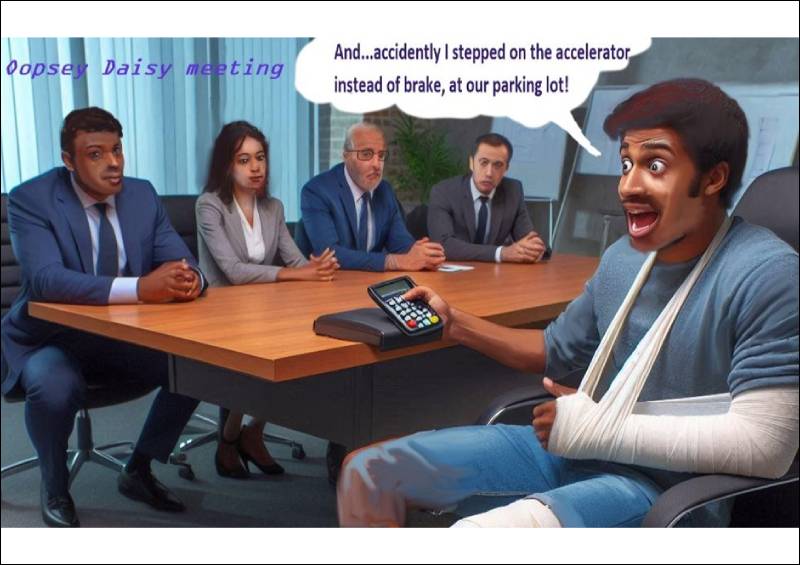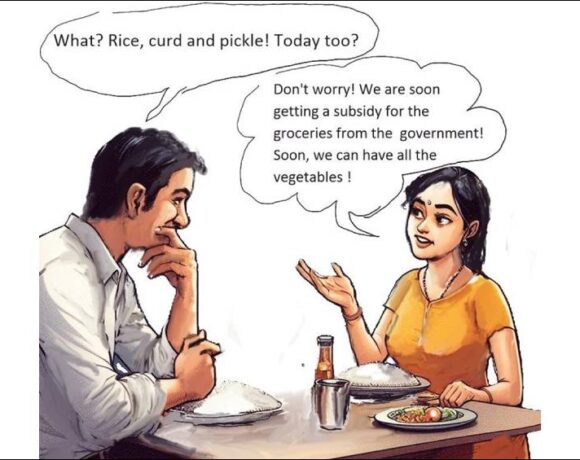Learnings From Epic Flop Sessions (Oopsie Daisy Meetings)

The Epic Flop Sessions are not about dwelling on the negatives, but leveraging these experiences to drive positive change, writes Murugan S.
“What is it again?” I asked my friend, confused.
“Yesterday, I had an Epic Flop Session at our mill!” he replied, emphasizing the word ‘Flop’.
“I’ve never heard of that! What is it?” I asked him.
“‘An Epic Flop’ means one thing that is expected to succeed but would fail ultimately. In one of our monthly group meetings, we have a session dedicated to this where we share our failures without any judgment. We humorously call these sessions Oopsie Daisy meetings. It’s different from other meetings where we discuss incidents of not meeting certain business metrics,” he explained.
“Failures! Why on earth do we need such stories instead of successful ones?” I shot back with a question.
“You know, constantly hearing success stories can create unrealistic expectations and pressure on employees. We call it Toxic Positivity. People in a company, from the lower ranks to top management, only want to hear success stories. Generally, it’s good for a company to celebrate and widely share success stories as they serve as an inspiration and motivation for others. But it has its limits. ‘Too much of a good thing is not good’ is an adage,” he replied.
“What will happen if people hear too much positive and success stories?”
“I can speak in volumes on this topic for hours but, in a nutshell, I will give you three important things happening to people who hear too much positivity.” he paused for a moment and continued.
“The first one is that the constant exposure to success stories might create unrealistic expectations about how easy it is to achieve success.
Second, it can lead to increased pressure and stress, as people might feel they need to constantly succeed and match those stories.
Third, hearing too many success stories can lead to unhealthy comparisons and self-doubt, making people feel inadequate if they don’t achieve similar success,” he explained.
“Ok, then what? How does a company get affected?” I asked him in a sarcastic tone.
He replied with a smile. “Employees suffering from toxic positivity may fail to take responsibility for their own failures or mistakes. They often believe that whatever happens is due to reason beyond their control. Many times, they bring made-up stories to the meeting to make an impression. So, the transparency and loyalty are lost. Another thing is that any innovation often involves taking risks, and not all risks pay off. By openly discussing failures, organizations can create an environment where employees feel safe to experiment and innovate without the fear of repercussions. This can lead to breakthroughs and creative solutions that might otherwise remain unexplored.”
At this point, I had no reason not to agree with him.
“Yes, I think you are right! Feelings of negativity are normal, and we all experience them at some point in our lives. It is therefore important to acknowledge and express them just as we do with positive vibes. Okay, what did you present in yesterday’s meeting?” I asked him.
“It was a kind of review of my previous submission. Based on my previous submission, our management had approved and sanctioned some funds to change the spindles of the ten-year-old ring-spinning machine. I had proposed that by replacing the 20.2 wharve-diameter spindles with 18mm ones, we could save 3 to 5% in energy consumption. I had firmly declared that the lighter weight and smaller wharve-diameter spindles would certainly be a good solution for energy conservation.” He paused and laughed, probably thinking about his failure.
“Then what?” I asked curiously.
“Things did not go well as I expected. Instead of saving energy, it ended up consuming a marginally higher amount of energy compared to the existing spindles,” he smiled.
‘How could he smile in this situation?’ I thought.
It seemed he noticed my thoughts. “I know what you’re thinking! Things don’t always happen the way we expect. There may be failures. All of us in our mills understand this, so we don’t hesitate to share these kinds of failures. Recently, we found that the energy consumption of the spindles is mainly based on the concentricity of the spindles and not their weights. We also found many other reasons for that. But, just telling you one example,” he concluded.
“Thank you and can you share some of the rules followed for such meetings?” I requested him.
“Sure!” Saying this, he handed over a set of rules printed on a piece of paper. They were:
- Be respectful: Create a safe space where everyone feels comfortable sharing without judgment,
- Focus on learning: Encourage participants to highlight what they learned from their flop, not just the mistake itself.
- Keep it light: Humour can help ease the tension. Maybe start with a funny icebreaker related to failures.
Conclusion
The Epic Flop Sessions are not about dwelling on the negatives, but leveraging these experiences to drive positive change. It creates a culture that values transparency, learning and continuous improvement.
Are we brave enough to accept and share our failures in a meeting? Frankly those who has no failures means he hasn’t risked new ideas.
(Murugan Santhanam is the Managing Director of Texdoc Online Solution Pvt. Ltd.)














